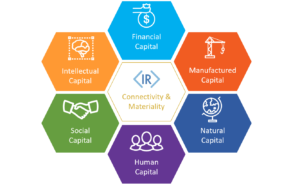Long-lasting standards are primordial to create a durable expansion master plan
There are 3 top queries:
- How does shareholder capitalism – concentrating on the client, humans, and social morals, not only measurable indicators – emphasize companies concentrate on long-lasting standards?
- As the global markets pay more attention to the non-measurable indicators, how could enterprises use those to turn them into KPIs?
- Should the C-level enlarge to have a bigger variety of points of view in corporate growth and real-world expansion?
Businesses are affected by the daily cost oscillations, and energy and petroleum enterprises expanded their master plan and development vectors far above short-period economic benefits. Towards a time when the requirements for energy have never been this high, construction and telecom companies responded to calls to aid on eco-footprint preservation, and social endowment. Amongst unmatched oppression to concentrate on precautionary medicine, pharma enterprises widen their stakeholder optics to include the people receiving their medical treatments, the environment, helping focus groups within the enterprise to acknowledge their new focus,
Each of these enterprises is committed to such strategic actions because their CEOs acknowledged that investing in a broader set of shareholders would generate a bigger impact on the values, access to the financial growth, and professional employees market for their companies. This long-lasting value emphasis creates a broad development.
Days, when the focus was only on the stakeholder, are gone. Shareholders analyze a company by concentrating on the clients, humans, and social morals, on top of the financial values. These are the pillars of the long-period development framework. Correspondingly, companies are reshaping the way they develop their businesses while discussing both purposes and master plans- focusing on long period values through the eye of shareholder capitalism. Traditional master plans that concentrate on financial outcomes became very risky nowadays. Long-period values have come on top.

Taking into consideration the value of the four verticals can upgrade your enterprise processes.
The long-lasting framework targets to respond two top questions for the C-level, the boards, and the investors:
- Which things will improve – or demolish – the values for the enterprises in the next years?
- And how could the enterprises form around broader, shareholder-driven schedules?
Of course, the operational managers must keep an eye on short-period performances. In fact, for most enterprises, committing to a clean and profitable nucleus is primordial to target the top investments. Thus we would expect corporations that concentrate on a wider set of shareholders will have better results – in the short, medium, and long periods – and will gain a place in the marketplace with diminished costs of capital, great human capital, and in the long play – the exponential growth in the company value.
For instance, enterprises are already moving to unconventional techniques to improve the environmental footprint – a key component to the societal value pillar. We see that enterprise communities are going far above the calls of lawmakers, moving toward safer and greener solutions for company developments.
Implementing what they are actually preaching, most companies are striving to become carbon-neutral in 2022 and zero by 2025. It is important to implement new metrics to facilitate strategic and financial allocation actions, by implementing shareholder capitalism in the organizations.
Assessment is primordial
Such things that made enterprise chiefs very skeptical towards the non-revenue values as KPIs is the fact that they are missing useful measurements. It is no longer like that. Many shareholder measurements – in fact, KPIs related to the environment, societal values, and good governance (ESG) criteria – changed their way from the chief strategic officer’s responsibility to the CEO’s. The long-period values verticals that enterprises should focus on include:
- Customer value — including satisfaction, trust and loyalty, and brand equity
- People value — comprising engagement, leadership, employee loyalty, diversity and inclusiveness, and health and wellness
- Societal value — encompassing sustainability, total economic impact, carbon footprint, water consumption, and ethics
Make a move: communicating the new shareholder priorities
The aim of any enterprise, in the long run, is to create its own history – not leaving it to the competition to decide. Opinions with business impact are all over, they include the systematic stakeholder, lawmakers, clients, digital platforms, media, organizations. A business that has a strategy with 4 long-period value verticals – and which can work on how the client, humans, and societal components generate the growth – will always win against other competitors.
In order of obtaining this, businesses must follow these primordial actions to succeed:
- Find your objectives, outline the approach of creating principles, and acknowledge the shareholder presupposition. This is the core of a long-period value plan of action. Afar of outlining their aim, enterprises should also find key shareholders as well as their particular demands and/or presumptions.
- Create your guidance to encircle different points of view. Being in charge of correctly analyzing the values, requires encircling different points of view so that you have a complex image of how the growth should look like. This might seem like entitling other C-level employees, with different areas of expertise, including the crisis managers, business development, HR, and financial managers. At the top levels, CEOs and CTOs, as well as CFOs, are re-considering how to reshape their collectives so that the measurements, evaluations, and values should be in the right place.
- Identify and use specific KPIs across shareholders’ duties and roles. The significance of this action cannot be made a point of in a sufficient way. Management should have a serious concentration on the extensive set of KPIs and use that indicator panels to generate investments and brand awareness.
Summary
As enterprises envision a post-Covid-19 future, they might have an unparalleled occasion to implement the visions of different shareholders. The companies which outline their long-period benefits and invest for the best management will at the same time benefit their stakeholders, and in the fullness of time, their own fundamentals.



